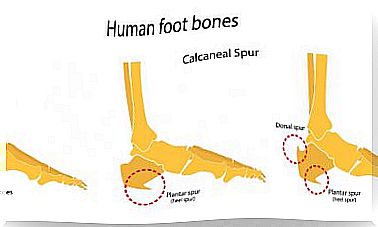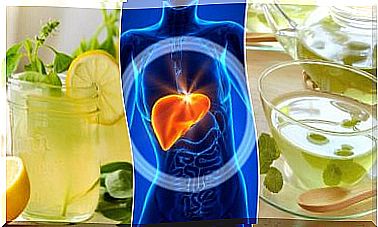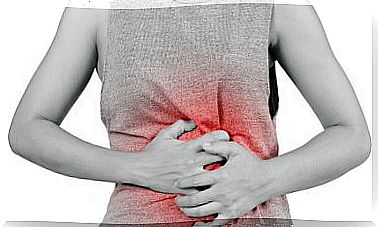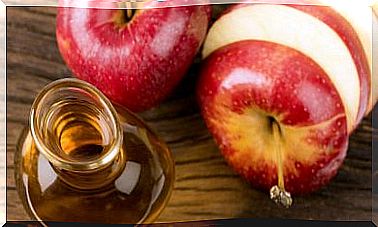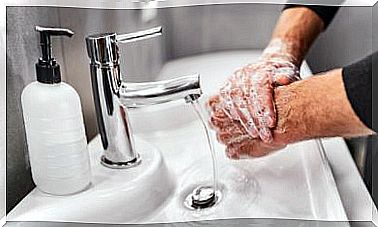Anisakis: How It Is Contracted And How It Is Treated
Infection caused by parasites called anisakis poses a risk to human health in two ways. On the one hand, through infection by worms when eating fish that is not well cooked. On the other, through allergy reactions to the chemicals that the worms leave in the fish.
Before getting into the infection itself, we must know what causes it, that is, know in more detail the cause of infection. In this case, as it is a parasitic disease, we will learn more about this parasite.
Anisakis, a dangerous parasite
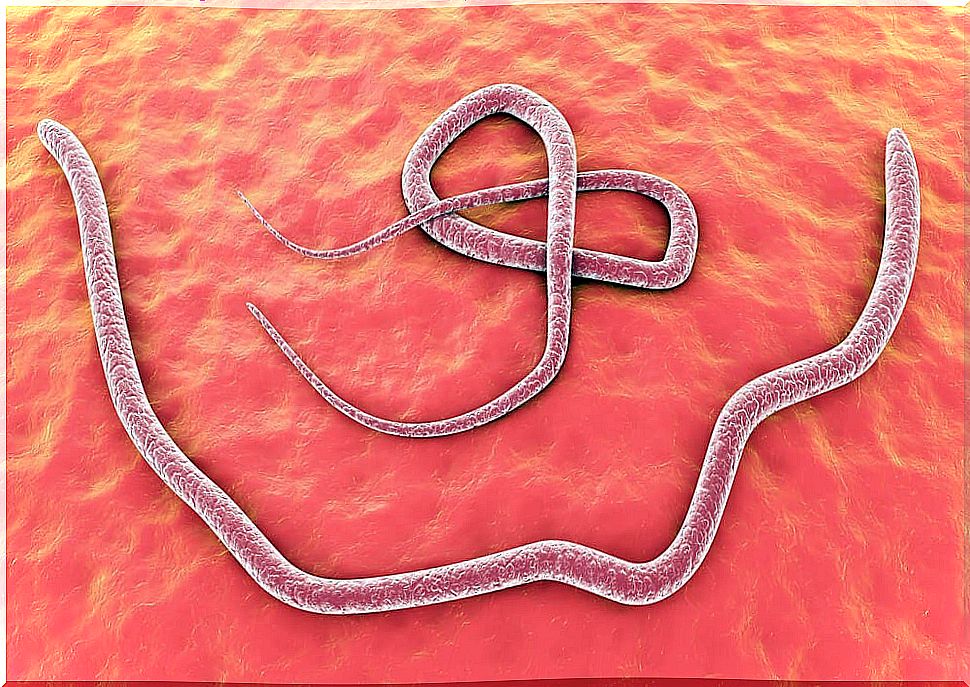
Yes, anisakis is a parasite, but do we know what a parasite is? As much as we talk about the term anisakis, if we do not know its origin we will not be able to understand why this disease occurs.
Well, the term parasite comes from Latin, from the word parasitus. A parasite is an organism that needs another in order to live, that is, it lives at the expense of another species. The parasite, which can be both animal and plant, feeds on the other organism, weakening it, although, in general, it does not lead to its death.
Therefore, the parasite and the other organism create a biological interaction called parasitism. On the one hand, there is the species that houses the parasite and is known as the host and on the other, there is the host, which in this case would be the anisakis.
Ultimately, it can be said that parasites benefit from the association they establish with the other organism, while the latter is harmed by this type of relationship.
There are situations in which the parasites themselves can become hosts for a third species. These types of parasites are known as hyperparasites. In this way, a chain is produced where the hyperparasite lives at the expense of the parasite, and this does the same with its host.
Symptoms of anisakiasis
Anisakis is a nematode parasite. The life cycle affects fish and marine mammals, and can cause damage to their digestive tract. When humans eat infected fish, this worm can cause digestive disturbances and allergic reactions.
Therefore, when the anisakis parasite causes a disease, it is called anisakiasis . It occurs frequently in parts of the world where a lot of raw or slightly salted fish is eaten. Hours after ingestion of the larvae of this parasite, the following symptoms may appear:
- Abdominal pain.
- Sickness.
- Vomiting
- Diarrhea.
- Allergic reactions.
A gastroscopic examination is usually performed to achieve its diagnosis. With this test, 2-centimeter larvae can be visualized and removed. A histopathological examination of the tissue that is removed by biopsy or surgery may also be done.
Anisakiasis prevention
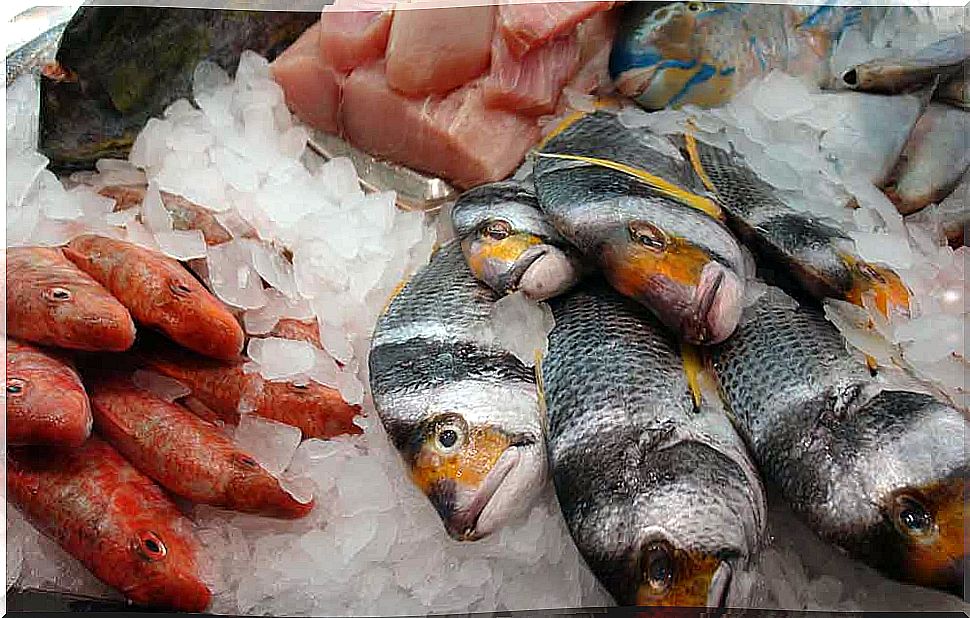
Prevention is simple and effective. The main recommendations are to clean the fish well, separate the viscera as soon as possible, freeze it before and then cook it well, so that it is not raw.
When preparing in the oven, on the grill or on the grill, it is recommended to open the fish to ensure that the ideal temperature of 60 ºC is reached inside the animal. It is very important to remember that it should never be consumed raw or marinated.
Despite these recommendations, there are fish that do not need to be frozen to prevent anisakiasis . River or swamp fish, such as trout or carp, or those that come from fish farms do not contain this parasite and, therefore, cannot transmit it.
Other marine species that do not require prior freezing are oysters, mussels, clams, clams and other bivalve mollusks. These animals can be eaten raw and without prior freezing since they do not cause disease.
A curious fact is that in Spain most of the patients infected by anisakis have ingested uncooked anchovies. Among these, those dressed with vinegar top the list.
How is anisakis infection treated?
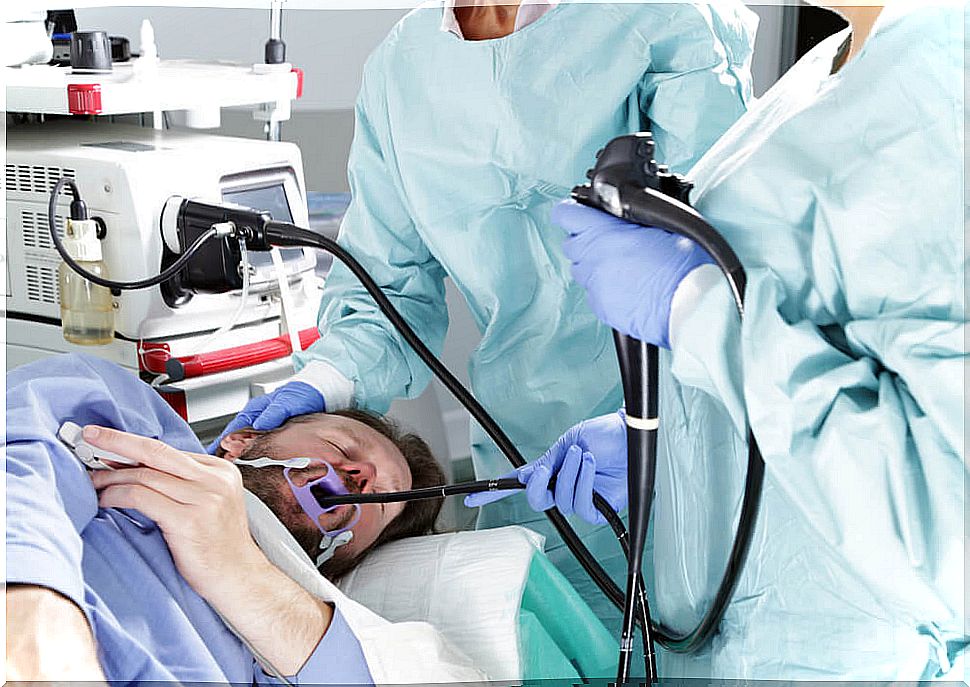
Many times it is easy to detect the parasite and remove it. A technique called upper gastrointestinal endoscopy is often used . There are cases in which this maneuver is not possible and the patient has to undergo urgent surgery. This occurs in cases in which complications appear that put health at risk, such as an intestinal obstruction or peritonitis.
On the other hand, a symptomatic treatment is enough to end the infection, since it usually ends up healing on its own. Gastric protectors are usually indicated, such as omeprazole, and in cases of allergy, corticosteroids and antihistamines are administered.
